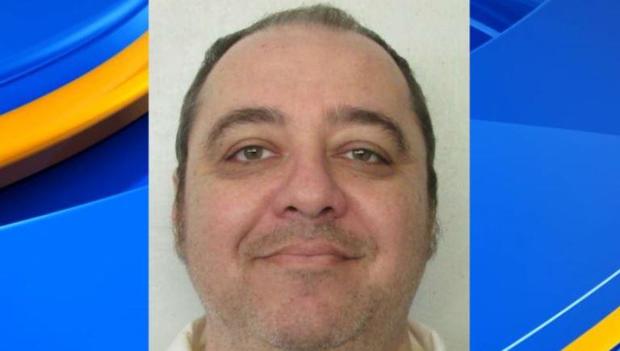Supreme Court sides with Alabama inmate who wants to be put to death by nitrogen hypoxia
The U.S. Supreme Court on Monday sided with an Alabama death row inmate, who had his lethal injection called off at the last minute in November, and argues he should be put to death by nitrogen hypoxia when he is ultimately executed.
Justices without comment rejected the Alabama attorney general’s request to review an 11th U.S. Circuit Court of Appeals decision regarding inmate Kenneth Eugene Smith. The state argued the decision disregarded Supreme Court precedent that an inmate challenging an execution method must show that an alternative method is readily available, not just feasible.
Alabama has authorized nitrogen hypoxia – death as a result of breathing pure nitrogen – as an execution method but no state has attempted to use the untested method to put an inmate to death.
Smith was scheduled to be put to death by lethal injection on Nov. 17, 2022, for the 1988 murder-for-hire slaying of a preacher’s wife.
On the day of the execution, a divided 11th Circuit panel stayed the execution after Smith raised concerns about previous lethal injections in the state and suggested nitrogen hypoxia as an available alternative method. The Supreme Court disagreed and lifted the stay. However, prison officials ended up calling off Smith’s execution for the night after staff were unable to find a suitable vein to connect the second of two intravenous lines to Smith’s body.
Justices Clarence Thomas and Samuel Alito dissented from the Supreme Court’s opinion, saying they would hear the case.
“The Eleventh Circuit’s error is not only plain but also serious enough to warrant correction,” Thomas wrote in a dissent.
Alabama Department of Corrections
Alabama Gov. Kay Ivey in November announced a pause in executions to conduct an internal review of procedures. The review came after problems with intravenous lines caused multiple executions to be canceled or delayed. The state is seeking to resume executions this summer.
Attorneys for Smith have claimed his November execution attempt was botched. Smith has an ongoing lawsuit seeking to prevent the state from making a second attempt to execute him by lethal injection.
“To subject Mr. Smith to a second execution by lethal injection would subject him to a torturous experience of unnecessary physical and psychological pain, as has been established through Alabama’s last three execution attempts,” Smith’s lawyers wrote in a December court filing.
Prosecutors said Smith was one of two men who were each paid $1,000 to kill Elizabeth Sennett on behalf of her husband, Rev. Charles Sennett, who was deeply in debt and wanted to collect on insurance.
Elizabeth Sennett was found dead on March 18, 1988 in the couple’s home in Colbert County. The coroner testified that she had been stabbed eight times in the chest and once on each side of the neck.
Her husband killed himself a week later.
John Forrest Parker, the other man that prosecutors said was paid to kill Elizabeth Sennett, was executed in 2010. When asked if he had any final words, Parker turned his head to face Mike and Charles Sennett, the victim’s sons, and said, “I’m sorry. I don’t ever expect you to forgive me. I really am sorry.”
Last September, Alabama called off the execution of Alan Miller because of difficulty accessing the inmate’s veins. Alabama Corrections Commissioner John Hamm told reporters that “accessing the veins was taking a little bit longer than we anticipated” and the state did not have sufficient time to get the execution underway by a midnight deadline.
That was at least the third time Alabama has acknowledged problems with venous access during a lethal injection. The state’s July 2022 execution of Joe Nathan James for the 1994 murder of Faith Hall took more than three hours to get underway. CBS affiliate WIAT-TV reported Hall’s family had opposed James’ execution.
And, in 2018, Alabama called off the execution of Doyle Hamm after being unable to establish an intravenous line.
According to the Death Penalty Information Center, Alabama has 166 inmates on death row.
For more latest Education News Click Here


